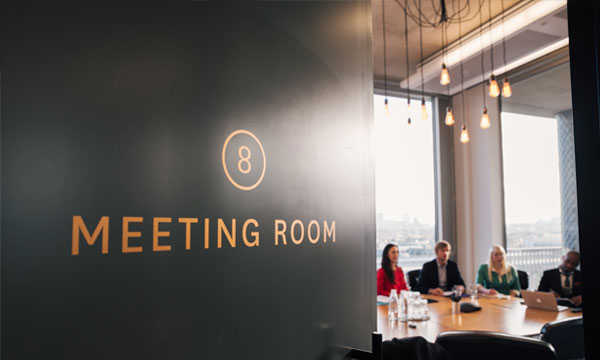WE’RE IN THIS TOGETHER
In our lifetime we have never seen anything like this. There have been massive natural disasters, the trauma of 9/11 and the 2008 financial crisis. They pale in comparison to what is unfolding before our eyes today.
In my reporting days, I recall vividly working all hours after the terror attacks on the World Trade Centre. During the great ice storm, a cameraman and I did a white-knuckle drive through crazy conditions on the 401 all the way to Montreal, where everything was closed, hydro towers were bent in half, with no sign of when the electricity would come back on. In 2008, I stood, astonished at the news conference where Prime Minister Stephen Harper and Premier Dalton McGuinty announced a massive bailout of the auto industry, saving the sector that was once the backbone of the Ontario economy from collapse.
As huge as those events were, I’ve seen nothing so widespread, unsettling and disruptive as the Covid-19 pandemic. If the prospect of potentially millions dying from this virus was not scary enough, our economy is now grinding to a near halt. Many people simply cannot work. As I write this, the prime minister is announcing an $83 billion relief package for businesses and individuals, even as the Canada-US border is being closed for all but essential travel. Mind-boggling numbers and actions, with more likely to come.
In these fraught times, we are all challenged to help each other or at minimum try not to make things worse. Those who fail to do so or who try to capitalize, can expect consequences.
To that end, I was so pleased to see that iotum chose to step forward. The fact is, a firm that offers teleconferencing services will find that it is busier than ever in these times when people need to observe the protocols of social distancing. It is, frankly, awkward. The people at iotum are in the same boat as the rest of us, worried about getting sick, struggling to keep the kids occupied with no school and unsettled by the necessity of working from home. But at the same time, clients are calling like never before.
The leadership at iotum instinctively chose to do the right thing, offering a free upgrade to its FreeConference.com. The basic plan is already free and is aimed at charities, churches and non-profits. But now many of them will count on remote conferencing more than ever. The upgrade will allow them to have access to a greater suite of services. For those with a greater need, the premium Callbridge service is always available free for a 30-day trial.
Other enterprises have also stepped forward, promising to protect their workers and support their clients, even as business evaporates. People are volunteering to help charities, to bring groceries to seniors, to provide stopgap childcare to overworked health care workers.
I have recently started production on a podcast where we speak about the concept of social purpose. It is a relatively new and welcome phenomenon. Corporations are starting to realize that a slavish commitment to bottom line results for shareholders is no longer good enough. Employees, clients and the broader community are starting to demand that businesses show a concrete commitment to improving society. It is becoming the new normal and also happens to be better for the bottom line.
When Mohamad Fakih, the CEO of the Paramount Foods chain of restaurants, led the Canada Strong fundraising effort to assist the families of victims of the Iran plane crash in January, he saw revenues jump.
In 2014, the giant CVS drug store chain in the US stopped selling tobacco. It was a big money maker for them but was not such a great look for a company that was principally concerned with health. Profits increased when they removed cigarettes from their stores.
In the challenging days of Covid-19, I hope the concept of social purpose takes deeper root. There are good signs. A distillery switched from making gin to hand sanitizer. Auto parts makers proposed to retool to make respirators.
Much of my work is in crisis communications, advising businesses and individuals on what to say at the worst of times. The central tenets of crisis communications are empathy, responsibility and transparency. The best communications strategy is to do the right thing. From what I have seen, most people get it.
Amid all the damage wrought by the pandemic, both to our health and our economy, important and lasting lessons may be learned. We should all improve our hand washing techniques and understand the necessity of staying home when feeling sick.
And yes, more of us may become conversant and comfortable with teleconferencing, which could mean less unnecessary travel, with real benefits for the longer-term battle with climate change.
A crisis tests us all. Those who prevail will be those who act with compassion and understanding.
Sean Mallen is a communications consultant and the former Queen’s Park Correspondent and Europe Bureau Chief for Global News.




